Over 300 ISPs Now Improving Routing Security with MANRS

Today, we’re proud to announce another milestone: the number of network operators that commit to the Mutually Agreed Norms for Routing Security (MANRS) has surpassed 300.
The current number of network operator program participants stands at 322. These Internet Service Providers (ISPs) joined the initiative by showing their conformance with the actions to improve the resilience and security of the Internet’s routing infrastructure.
Launched in 2014 with a group of nine operators, the number of MANRS participants reached 100 in 2018 and has risen rapidly in the last two years, with 156 joining in 2019 alone, and 45 so far in 2020.
This includes operators in more than 60 countries across all continents; with Brazil leading the way with nearly 70 MANRS participants, followed by the US with nearly 50.
According to BGPStream, the number of reported routing incidents was on the decrease from 2017 to 2019 (see chart below), while the number of MANRS participants grew in the period. While this does not mean one caused the other, a correlation between the two can be observed.

The MANRS community has grown rapidly through its other programs, too. In 2018, the initiative expanded to include Internet Exchange Providers (IXPs), which Continue reading
Could the CARES Act Close the Digital Divide in the United States?

Last week, the U.S. Congress passed the third stimulus bill in response to the COVID-19 pandemic. This bill primarily focused on economic relief for companies, individuals, cities, states, and tribal communities. It allocates over $2 trillion in funds for a variety of measures intended to ease the burden of COVID-19.
Some of the included measures have been in the news for weeks, including those related to individual checks for those financially impacted by the virus. But there is an element to this bill that is equally important, not only for our ability to cope with the virus now but also to permanently change our country for the better.
These emergency funds allocate $150 billion to states and territories, including $8 billion specifically for Tribal governments, for “coronavirus relief.” What that relief looks like, however, is relatively vague. If a community was financially impacted by the pandemic between March and December of this year, in a way that they did not originally anticipate in their budgets, this fund covers most of those expenses.
And what is one of the biggest impacts we’ve seen? Millions of people have been forced to isolate themselves at home and carry out their daily Continue reading
The Week in Internet News: Pandemic Puts Spotlight on Access Problems
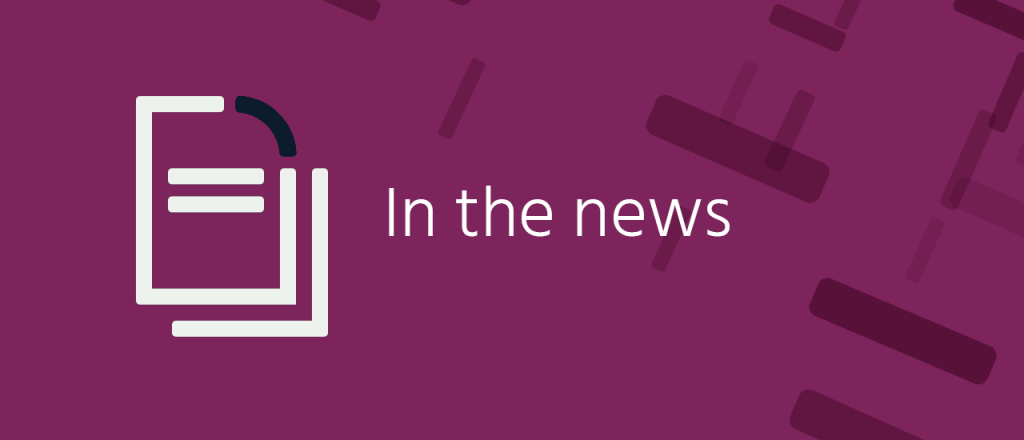
No working from home: Working from home during the COVID-19 pandemic is tougher in some places than in others. Business Insider finds 17 U.S. cities where Internet access is lower than in much of the rest of the country. Many of the cities listed are across the South and in New Mexico.
Students need access: Alabama’s state schools superintendent is worried about a lack of access for some students while schools are shut down during the pandemic, AL.com reports. There are several “gaps” in access for students, but some school districts are using buses to deliver WiFi.
100,000 laptops: Meanwhile, in Arizona, more than 100,000 students need laptops in order to do school work from home, AZcentral.com reports. The Greater Phoenix Chamber Foundation has been running a laptop drive to reduce that number. Access is also a problem in some rural areas, with some areas having only 25 percent of households with Internet access.
Fundraising for access: In Maine, the Bangor School Department has turned to fundraising to provide 350 families with Internet access so students can participate in distance learning, the Bangor Daily News reports. The school department raised about $28,000 in a week on the Continue reading
Why Is So Much Internet Traffic Leaving Pakistan?

This article appeared first on the APNIC website.
At the recent SANOG meeting held in my homeland, Pakistan, I wanted to provide the local community with some insights into the importance of Internet exchanges (IXs), specifically the need to host content locally.
Knowing that data is king among network operators, I set up a virtual machine as soon as I arrived to collect information on several key metrics, including latency and the hosting location of .pk domains. Needless to say, the results were surprising.
How long does it take to connect to public Domain Name System (DNS) services?
First, I tested for latency, specifically the time it takes to PING three of the most popular public DNS services: Cloudflare DNS (1.1.1.1), Google Public DNS (8.8.8.8), and Quad9 (9.9.9.9). PING is not the best way to test DNS but this is for reachability purpose only.
Before leaving my home in Sydney, Australia, I did the same to offer a comparison. As you can see from the results in Figure 1, all were below 1ms.

The results for Pakistan were Continue reading
Indigenous Connectivity Summit Policy Recommendations: Helping Policymakers Make Inclusive Decisions
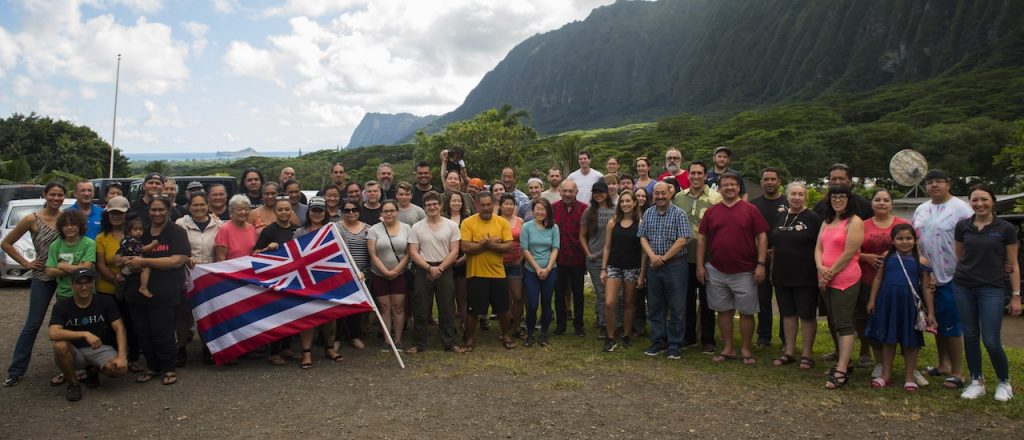
As billions of us move into self-isolation, one thing is crystal clear: Internet access is critical. If anyone of us took it for granted before, COVID-19 has changed everything and rocketed the world into a new era. So it’s even more critical we build an Internet for everyone.
But we’ll only get there if we bring more diversity to the table when it comes to building infrastructure, developing sound policy, and creating the communities needed.
A lot of our work involves bringing people together. Network operators, policymakers, advocates, community members, and more. That’s because the Internet is built by people, and new ways to bring infrastructure to the world only come from what can happen when people come together.
In 2019, the Internet Society held the third annual Indigenous Connectivity Summit (ICS) in Hilo, Hawai’i.
Among the delegates were five Indigenous advocates from across North America who trained to become 2019 Indigenous Connectivity Summit Policy Advisors.
Based on conversation and outcomes from the Summit, they developed a set of recommendations to help policymakers in the United States and Canada make more inclusive decisions. These recommendations build on those developed at the previous Summits in Santa Fe, New Mexico and Inuvik, Northwest Territories.
These recommendations were then discussed and agreed Continue reading
What Does a Global Pandemic Mean for the Internet?

This interview was originally published in Technical.ly.
The Internet has long been a connector beyond the physical. Now, it’s the only reason people are able to see their faraway loved ones and complete remote projects with their coworkers amid pandemic-prompted social distancing. It’s a great moment for the technology — and for hackers.
Reston, Virginia-based Internet Society is an advocacy organization that, in its words, promotes “the development of the Internet as a global technical infrastructure, a resource to enrich people’s lives, and a force for good in society.”
Katie Jordan, a resident of Philadelphia’s Graduate Hospital neighborhood, joined the team in 2018 after serving as a policy and program manager at Next Century Cities where she worked with emerging tech issues. As Internet Society’s senior policy manager, Jordan develops and advocates for policy related to Internet access and security.
She talked to Technical.ly about what the Internet Society is focusing on now and if COVID-19 is going to change the way we use the Internet.
Technical.ly: What does Internet Society do when there’s not a pandemic, and how has your work shifted recently?
Jordan: It’s made everything feel more urgent. We’re not doing anything Continue reading
When We Come Together, We Are Richer for It

These are unsettling and unprecedented times.
The speed at which coronavirus has taken hold around the world, and the dramatic changes to our lives that it has brought, would have been difficult for many of us to contemplate just a few short weeks ago.
Social (and physical) distancing measures that were merely a suggestion then have suddenly become a strange reality for millions of people, with entire countries going into complete lockdown, borders and schools closing, planes no longer flying, and normal social activity placed on hold.
The vital role the Internet is playing is clear for all to see. It allows us to work together while we are socially apart, quietly and quickly providing many of us with a way to continue our lives. It has allowed us to maintain at least some sense of the ordinary during an extraordinary time.
We are asking a lot of the Internet, but it is ready for the challenge. It is enabling companies to keep working, schoolchildren to continue learning, and families and friends to stay connected. Even virtual birthday parties and weddings have become a hit!
The Internet means that self-isolation may be a physical reality, but it need not be Continue reading
Unfortunate Natural Experiment Shows the Internet Works
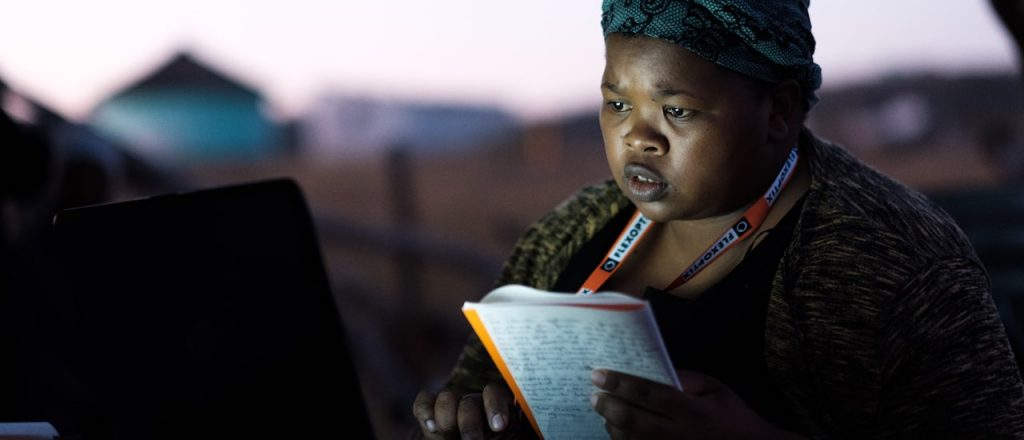
For many weeks now, as the pandemic caused by the coronavirus has spread around the world, people have been isolating themselves to reduce the spread of infection. Businesses and schools have closed, and whole cities have been ordered to stay indoors. People’s livelihoods have disappeared, and of course, far too many people have been critically ill or have died. It is a calamity. Yet it would be much worse, if it were not for the Internet.
It’s enabling life go on. Businesses and schools are able to continue their core activity online. People are able to order food and medicine delivery to lower the risk of contagion. Families are video conferencing to catch up, worship, and even attend weddings. Creators are streaming music and stories from their homes. Clinicians and researchers are sharing crucial medical data worldwide. Everyday citizens, remarkably informed, are trying to flatten the curve.
This is what the Internet is for: a force for good in society.
Resilient by Design
The Internet is working well under this sudden demand because of how it is designed. Nearly magic, the Internet is designed to be a reliable system built of unreliable parts. This might sound awful, as though it Continue reading
The Week in Internet News: Stay-at-Home Orders Highlight Need for Internet Access
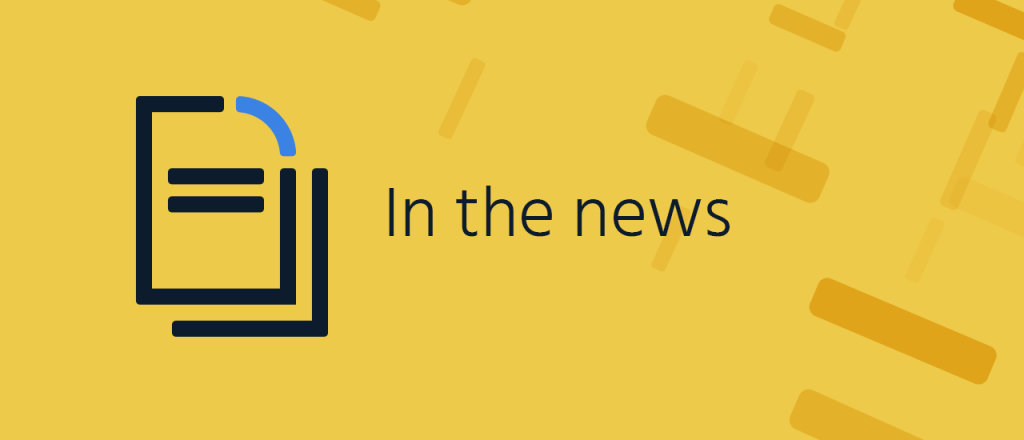
More important than ever: With most people in the U.S. and many other countries ordered to stay at home to prevent the spread of the coronavirus, a lack of Internet access in rural and poor areas is making people feel more disconnected than ever, according to an Associated Press story at NWAonline.com. Stella Ashcraft “lives from check to check and can’t afford internet. Her senior-citizen center, where she plays bingo, does puzzles and gets lunch five days a week, is closed. So is her church and the library where she checks email. ‘I feel very withdrawn, isolated, alone,’ she said.
Spotlight on Zoom’s privacy: With many people working from home, web-conferencing app Zoom has become a crucial service for many. However, with the increased use of Zoom is also coming increasing scrutiny. While the company has marketed its service as offering end-to-end encryption, that’s not really the case, The Intercept reports. Zoom Video Communications, the company behind Zoom, has been hit with a class-action lawsuit for allegedly sharing user data with Facebook, CBS News adds. Finally, Zoom has pledged to focus on privacy and security issues, TechXplore reports.
Homework hotspots: As most students in the U.S. and Continue reading
In Times of Crisis, All Communities Need to Be Connected

Amid the global spread of COVID-19, the exceptional strict confinement to our homes offers important lessons about the urgency of bridging the digital divide.
Where I live, in Osona (rural Catalonia, northern Spain), 15 years ago there was no Internet access. Commercial operators said it wasn’t profitable. So, we set up a community network, Guifi.net, initially with radio connections, and in 2009 we deployed fiber optics. Today, we have connected many small towns and have more than 200,000 estimated users.
According to the National Statistical Institute, Osona County leads with the percentage of households with a computer: 82.5%, exceeding the Spanish average of 69.8%.
Connectivity has broken rural social isolation, connected our schools and hospitals, and it is helping people face this emergency situation. People can access multiple interactive channels to inform themselves without leaving home. Without connectivity, our confinement would feel like prison.
Connectivity has been an economic savior for us. In our livestock-driven region, robots milk cows that wear pedometers to measure their steps and detect diseases. Farmers use connected cameras to monitor whether their pigs have complications during birth. Technology has saved time, money, and improved productivity.
Just 15 years ago, Osona trailed Continue reading
Disinformation: The Invisible Sword Dividing Society

Supermarkets have finally restocked their toilet paper in Hong Kong after weeks of panic buying when a rumor about toilet paper shortage due to closure of factories in China went viral. The toilet paper shortage did happen, but it was because of panic buying, not because of factory closure in China. How did the rumor spread? Was disinformation one of the culprits?
On February 25th, the Internet Society Hong Kong Chapter organized a Hong Kong Internet Governance Forum Roundtable on disinformation. On the panel was Eric Wishart, News Management Member at Agence France-Presse (AFP); Masato Kajimoto from the Journalism and Media Studies Centre of the University of Hong Kong; George Chen, Head of Public Policy (Hong Kong, Taiwan and Mongolia) at Facebook; and Charles Mok, a local Legislative Councillor.
Did someone spread “disinformation” about toilet paper shortage?
While a lot of people think that the rumor on toilet paper shortage is a piece of disinformation or fake news, Masato reminded us that it actually is not. Disinformation is information that is deliberately created to deceive people, which is different from “misleading information.” In the case of panic buying toilet paper, some people made an opinion about toilet paper production Continue reading
Encryption Helps America Work Safely – And That Goes for Congress, Too

This opinion piece was originally published in The Hill.
Over the past month, Americans across the country have adapted to a new reality of life, which includes social distancing to curb the spread of COVID-19. For those fortunate enough to be able to do so, that means learning to work, attend educational classes and socialize from afar using the Internet. For a huge number of Americans, social distancing means little to no work – and even greater uncertainty. Businesses, schools and government entities everywhere are asking the same question, “can we perform our work online and, just as importantly, can it be done securely?”
As Congress acts to respond to COVID-19, it faces a similar challenge. With some Congressional members and staff testing positive for COVID-19, and others choosing to self-isolate, lawmakers are exploring whether they can perform the most critical aspects of their office remotely – deliberation and voting. For Congress to be able to vote remotely on legislation, measures to ensure the integrity of these communications is critical. If even one vote is changed or blocked by a criminal or foreign adversary, the legitimacy of congressional decisions, and thus Congress as a whole, will be called into question. Any digital voting solution would need to rely on strong encryption to be secure.
Encryption is a critical tool to provide confidentiality and integrity to digital communications. Encryption enables much of the flexibility needed for staff to work from Continue reading
New Category of CDNs and Cloud Providers Join MANRS to Improve Routing Security

Today, we’re proud to announce the new MANRS Content Delivery Network (CDN) and Cloud Programme. This new program broadens support for the primary objective of MANRS – to implement crucial fixes needed to eliminate the most common threats to the Internet’s routing system.
The founding participants are: Akamai, Amazon Web Services, Azion, Cloudflare, Facebook, Google, Microsoft, and Netflix.
Now, let’s back up and explain how we got here.
What Is MANRS?
Mutually Agreed Norms for Routing Security (MANRS) is a global initiative, supported by the Internet Society, that requires collaboration among participants and shared responsibility for the global Internet routing system. It’s a community of security-minded organizations committed to making routing infrastructure more robust and secure.
Originally designed by and for network operators, the initiative has already been extended once to address the unique needs and concerns of Internet Exchange Points. These two facets of MANRS complement each other – the first secures customer-provider interconnections, while the second creates a safe public peering environment.
How Do CDNs and Cloud Providers Help?
CDNs are a geographically distributed group of servers that work together to provide fast delivery of Internet content across the globe, and today the majority of web traffic Continue reading
In New York City, Building a Network While Social Distancing
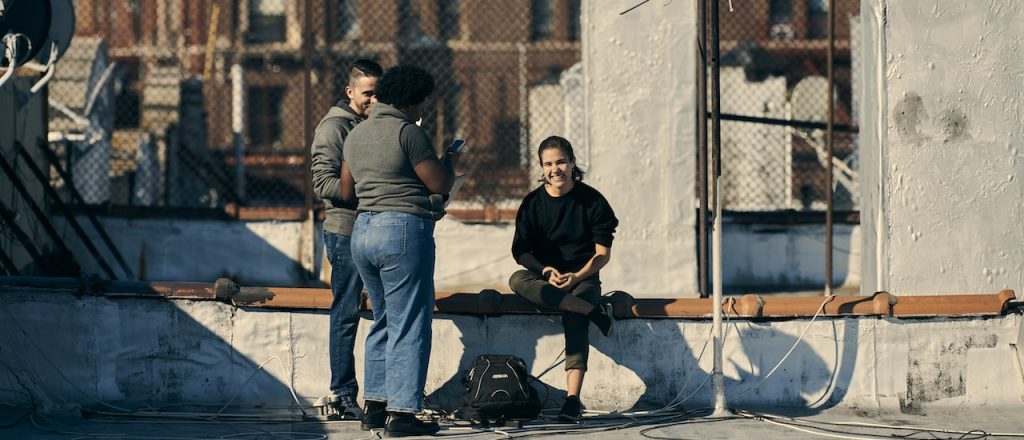
NYC Mesh connects people to “critical Internet lifeline” during COVID-19 pandemic
As COVID-19 spreads across the globe, cities are slowing to a halt and millions of people are self-isolating to help slow the spread of the virus.
The Internet has never been more important. It is a critical for up-to-date health information, a necessity for students to continue their education while at home and for their parent to continue working, enables access to government programs and supports like unemployment insurance, and can help alleviate the effects of social isolation.
Yet, in New York City alone, 1.5 million people don’t have access from their homes or mobile devices, largely due to high costs of connectivity.
A group of volunteers is working around the clock to change that, one antenna at a time.
NYC Mesh, a community network supported by the Internet Society, kicked into high gear earlier this month in advance of the pandemic, getting as many people connected as possible while it was still safe to do so, prioritizing those with no other Internet access. The ramp up –going from a couple of installs a week to one or more a day – was “a mad rush of Continue reading
The Week in Internet News: U.S. Senator Fears Attacks on Connectivity
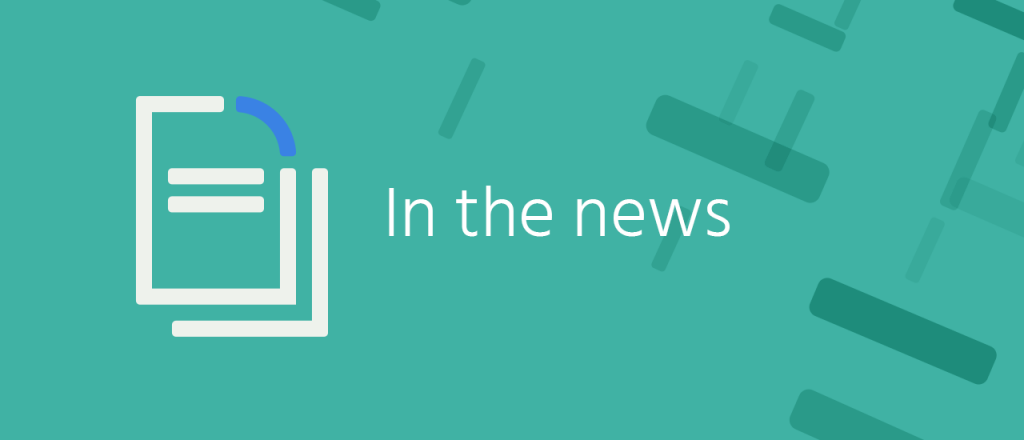
Networked virus: U.S. Senator Mark Warner has raised concerns about cyberattacks targeting Internet connectivity while many people are working from home due to the COVID-19 outbreak, The Hill reports. Warner, vice chairman on the Senate Intelligence Committee, wrote letters to network device vendors asking that they pump up the security of their products.
Sharing the WiFi: The U.S. Federal Communications Commission will allow schools and libraries to share their WiFi connections with the surrounding communities during the coronavirus pandemic, a change in the normal FCC policy about their WiFi networks, KRCRTV.com reports. Schools and libraries can set their own WiFi-sharing policies, the FCC said. Meanwhile, some libraries want to extend their WiFi networks using bookmobiles, Vice.com says. It’s unclear if FCC rules allow this expansion of service, however.
Tracking you and the virus: Some countries are tracking the coronavirus outbreak by tracking residents’ mobile phones, Science Magazine says. However, tracking phones also raises privacy concerns. “We don’t live in a culture of public trust when it comes to data,” says David Leslie, an ethicist at the Alan Turing Institute. “We live in this age that has been called the age of surveillance capitalism, where … our Continue reading
Member News: Ethiopia Launches Internet Society Chapter
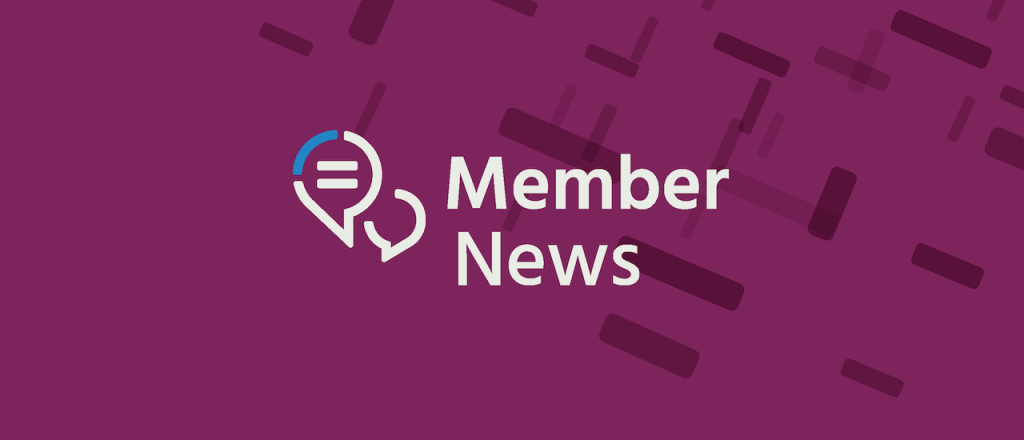
Ready, set, launch: An Internet Society Chapter launched recently in Ethiopia, with a goal of advocating for the development and expansion of open, secure, trustworthy, and affordable Internet access to everyone in the country. The idea of starting an Internet Society Chapter came from a workshop, “where we became conscious of the fact that more than 85% of the Ethiopia population is losing countless opportunities every day because they don’t have access to the Internet,” wrote Adugna Necho, a networking professor at Bahir Dar University. “We believe the Internet is for everyone and we are here to work with all people – from communities to businesses to governments and ordinary people to connect the unconnected and create a bigger and stronger Internet in Ethiopia.”
More Internet, please: The Internet will keep people connected while the world deals with the coronavirus pandemic, the India Chennai Chapter notes. Governments should resist urges to shut down service, the Chapter says. “With factories, offices, public places, transportation, schools are colleges shut down, and no clear picture of whether normal life would resume in 4 weeks or 4 months, it is the Internet that could make life go on,” the Chapter writes. “While it is Continue reading
Truth Matters: Why Journalists Need Encryption Now More Than Ever

As COVID-19 spreads around the globe, so has misinformation about the virus. Log into any social media account and it’s easy to get confused by friends and family sharing contradictory messages on anything from infection rates, to local preventative measures, and what to do if we feel a dreaded cough coming on.
Truth matters – especially when public health is involved – and we often rely on journalists and news sources around the world to help us separate fact from fiction. And, whether we realize it or not, there’s a digital security tool that is a critical factor in the trust equation: encryption.
In a period that has seen various governments and law enforcement representatives propose laws that would weaken it, the pandemic is an important reminder of the role encryption plays to protect both journalists, their sources, and general news integrity.
End-to-end (E2E) encryption is a tool that keeps digital communications private by scrambling content so that only the sender and receiver have the keys to unscramble and read it.
This is crucial for journalists.
Journalists often rely on secure communication services like E2E messaging apps to connect with sources in a trustworthy way. With COVID-19 spreading, many organizations Continue reading
Working with APRICOT to Improve Routing Security

We’re pleased to announce that the Internet Society and the Asia Pacific Network Operators Group Ltd (APNOG) signed a Memorandum of Understanding (MoU) to cooperate in supporting the MANRS initiative in the Asia-Pacific region.
APNOG is the non-profit entity that runs the annual APRICOT conference, also called the Asia-Pacific Regional Internet Conference on Operational Technologies. APRICOT is the largest meeting of the technical community in the region.
The agreement will see the two undertake initiatives and activities to promote the security of the Internet’s global routing system and Mutually Agreed Norms for Routing Security (MANRS). MANRS is a global initiative, supported by the Internet Society, that provides crucial fixes to reduce the most common routing threats.
We agree to tackle routing-related cybersecurity incidents such as route hijacking, route leaks, IP address spoofing, and other harmful activities that can lead to DDoS attacks, traffic inspection, lost revenue, reputational damage, and more.
APRICOT draws many of the world’s best Internet engineers, operators, researchers, service providers, and policy enthusiasts from around the world to share the technical knowledge needed to run and expand the Internet securely. The partnership will allow MANRS to better leverage the platform to promote routing security to conference participants, Continue reading
A Backdoor Is a Backdoor Is a Backdoor

Beware of false promises and threats to encryption security online.
It’s easy to understand why United States Federal Bureau of Investigation (FBI) Director Christopher Wray would ask companies to provide a means for law enforcement to access private data and communications.
“We’re all for strong encryption and… we are not advocating for ‘backdoors,'” he said at recent cyber security conference. “We’ve been asking for providers to make sure that they, themselves, maintain some kind of access to the encrypted data we need, so that they can still provide it in response to a court order.”
We all want to thwart criminals from using the Internet for harm. But here’s the catch: despite Wray’s claims, there is no way to comply with his request without breaking the security we all rely on to keep people, communications, and data safe online.
No matter what you call it, a backdoor is a backdoor. Any method that gives a third-party access to encrypted data creates a major vulnerability that weakens the security of law-abiding citizens and the Internet at large.
Encryption is essential to security online.
Consider how it contributes to the global effort to contain the COVID-19 pandemic. Encryption protects the electricity Continue reading
IETF 107 Starts Today as a Virtual Meeting

Later today, the 107th meeting of the Internet Engineering Task Force (IETF) will begin its working group sessions in an unconventional way. Previously, over 1,000 engineers were expected to be in Vancouver, Canada, to engage in the IETF’s work creating the open standards that make the Internet possible.
But with the global COVID-19 pandemic, the IETF leadership decided to cancel the in-person meeting in Vancouver. Instead a scaled-down, completely virtual meeting will take place. Only 12 of the IETF’s 115+ working groups will be meeting this week. Other working groups, and the research groups of the Internet Research Task Force (IRTF) may schedule interim meetings in the weeks and months ahead.
You can participate remotely in IETF 107. The steps are all outlined in this “Guide for IETF 107 Participants“. Useful resources include:
- IETF 107 Agenda
- IETF 107 Materials (slides, links to drafts)
To be clear, most of the work of the IETF in creating the Internet’s open standards ALREADY takes place online. People create “Internet-Draft” documents that propose new ways to make the Internet work better. Those documents are discussed and debated on email lists for working groups. Eventually those working groups reach “rough consensus” and Continue reading